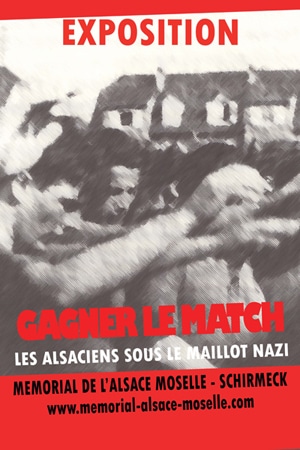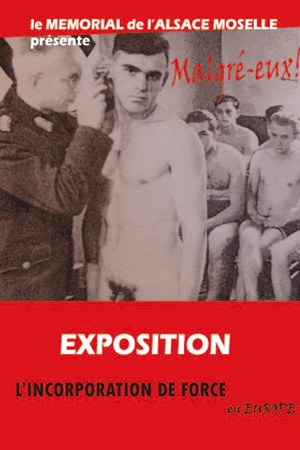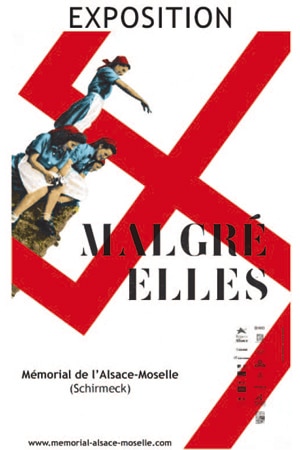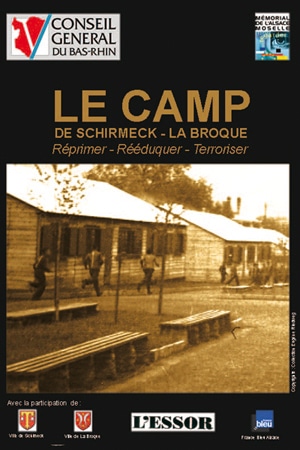Our travelling exhibitions
OUR TRAVELLING EXHIBITIONS
- Home
- Our travelling exhibitions
only available in french
TO WIN THE MATCH
Millions of bodies trained through sports, overloaded with love for country and filled with an offensive mindset could, within two years, transform itself into an army,” these were the objectives Hitler assigned to sports in Mein Kampf.
Directly following the French defeat in June 1940, Alsace and Moselle were annexed to the Third Reich. The totalitarian regime that was very quickly put in place impacted all areas of daily life.
FORCED MILITARY ENLISTMENT
At the creation of the Wehrmacht in 1935, German law limited obligatory military service to the “Reichsdeutsche” (German citizens of the Reich).
Therefore it was legally impossible to impose enlistment upon the newly annexed populations without first granting German citizenship. In order to do it, the German authorities selected a part of these populations and raised them to the status of “Volksdeutsche” (of German stock) based on racial criteria such as the origin of their grandparents, their culture, or the language they spoke.
The "malgrés-elles"
This is the difficult and sometimes violent fate of the young women of Alsace and Moselle taken against their will amidst the Nazi madness. Germany prepared each woman for submission to the Fuhrer, to the Reich, and to men.
A journey in three acronyms: BDM for initiation, RAD for the civil service and KHD for the war effort. The local girls more or less followed this path but fully endured in the erring of a brutal and disorderly occupation. All that remained for them in the period after the war was to experience the shame of having to stay silent and the ingratitude of boys who for so long monopolized the prestige of courage.
The Schirmeck camp
Other than the former Kommandantur, only a few traces remain of the Sicherungslager Vorbrück-Schirmeck (Schirmeck-La Broque Camp), since the barracks were destroyed after the war in order to build a neighborhood.
The first barracks were built by the French administration to welcome Alsatian families who had not been able to evacuate to the Southwest of France.










